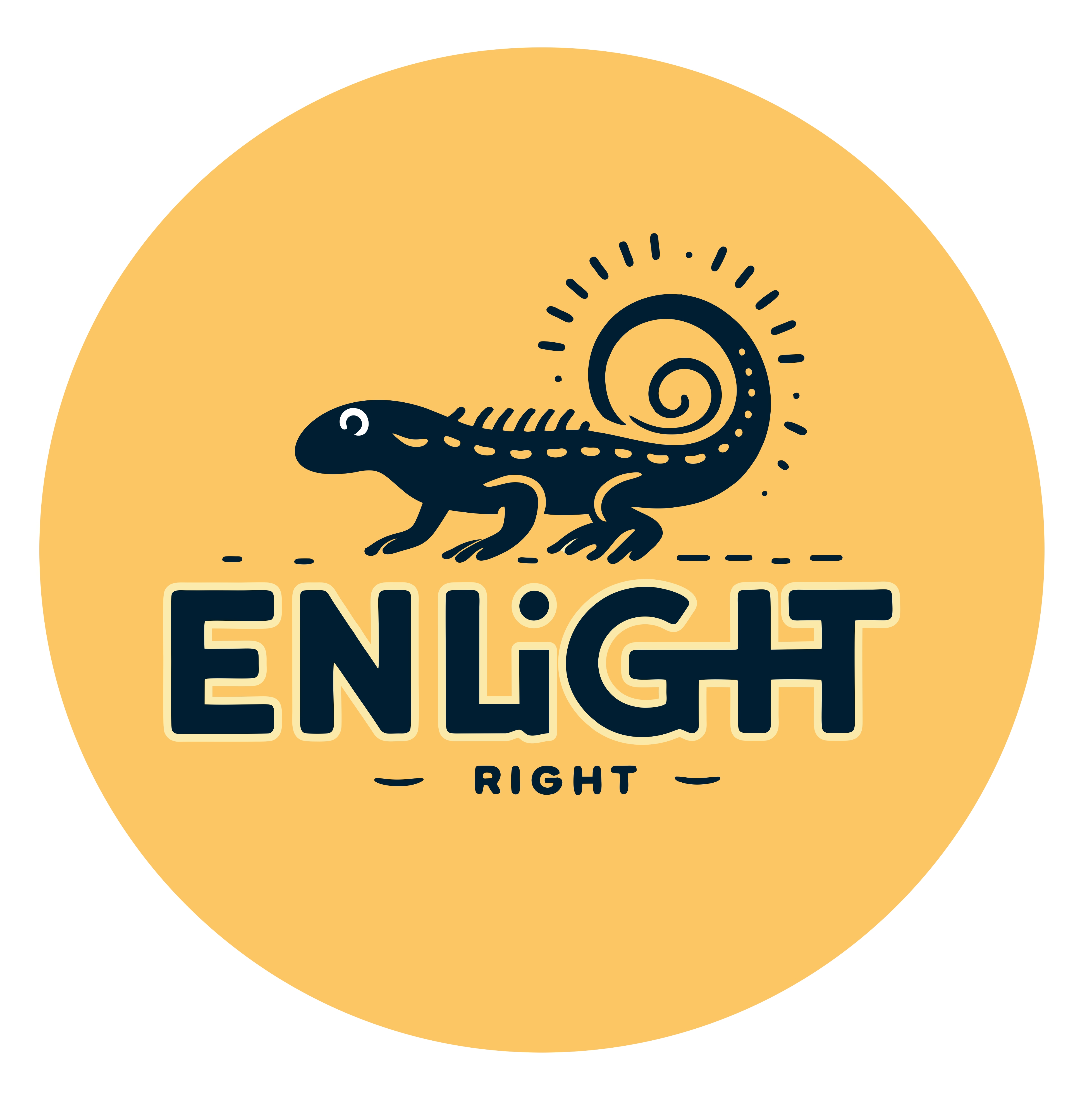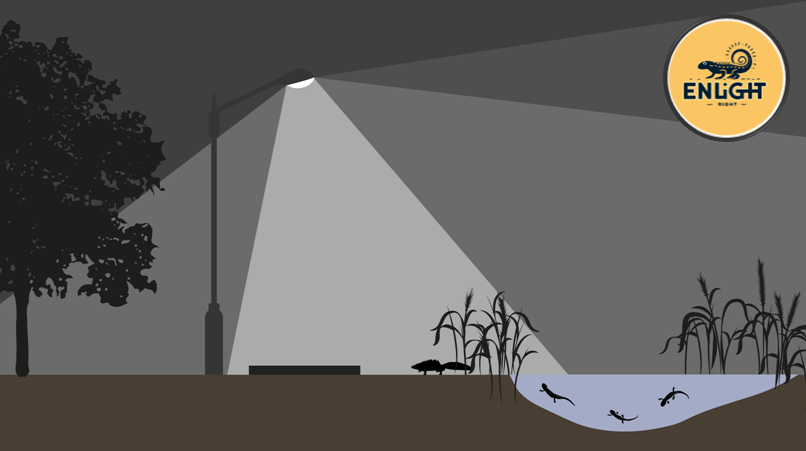 European Commission recognized light pollution as a new type of fast-spreading environmental change, however, regulations on light pollution across the EU are missing. One of the reasons for this is the absence of data about the adverse effects on wildlife. The degradation of natural dark imposed by artificial light puts significant pressure on biological systems. Given that amphibians are the most threatened vertebrate group, there is an urgent need to investigate the role of light pollution as a part of the urbanization on the decline of amphibian populations. Project ENLIGHT aims to determine the effects caused by long-term exposure to LED light at night on crested newts species Triturus ivanbureschi and T. macedonicus. The project considers: exposure to environmentally realistic intensities of artificial light at night; following effects across larval and juvenile stages; delayed effects of light pollution through phenomena of ontogenetic carry-over effects and hormesis; and determination of light color temperature with less negative effects (2700K or 6000K). Multilevel biological assesment includes measurment of developmental, survival and metabolic rates, day/night activity, corticosterone levels, and oxidative status. The project is also focused on increasing awareness of light pollution and conservation actions in protecting amphibians. Knowledge about the adverse effects of artificial light at night will support the development of guidelines on light pollution.
European Commission recognized light pollution as a new type of fast-spreading environmental change, however, regulations on light pollution across the EU are missing. One of the reasons for this is the absence of data about the adverse effects on wildlife. The degradation of natural dark imposed by artificial light puts significant pressure on biological systems. Given that amphibians are the most threatened vertebrate group, there is an urgent need to investigate the role of light pollution as a part of the urbanization on the decline of amphibian populations. Project ENLIGHT aims to determine the effects caused by long-term exposure to LED light at night on crested newts species Triturus ivanbureschi and T. macedonicus. The project considers: exposure to environmentally realistic intensities of artificial light at night; following effects across larval and juvenile stages; delayed effects of light pollution through phenomena of ontogenetic carry-over effects and hormesis; and determination of light color temperature with less negative effects (2700K or 6000K). Multilevel biological assesment includes measurment of developmental, survival and metabolic rates, day/night activity, corticosterone levels, and oxidative status. The project is also focused on increasing awareness of light pollution and conservation actions in protecting amphibians. Knowledge about the adverse effects of artificial light at night will support the development of guidelines on light pollution.
 Project coordinator:
Project coordinator:
Dr. Marko Prokić, Institute for Biological Research "Siniša Stanković"
Members from IBISS:
Dr. Tamara Petrović, Department of Physiology
Dr. Maja Ajduković, Department of Evolutionary Biology
MSc. Marija Drobnjaković, Department of Evolutionary Biology
External advisors:
Dr. Jelena Dunjić, Faculty of Sciences, University of Novi Sad
Dr. Tijana Vučić, Faculty of Biology, University of Belgrade
IBISS uses analytical cookies to analyze the use of the site in order to improve the user experience, by clicking "Accept" you consent to the use of cookies.